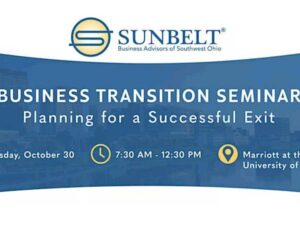Is a PTET Election Right for Your Construction Company?
Kirsch CPA Group
Dec 05, 2024

Businesses structured as partnerships, S corporations or limited liability companies generally aren’t subject to the federal corporate income tax. This is because tax liability “passes through” such entities to each business partner’s individual level. If your construction company operates under one of these entity types, you may have a new way to reduce your tax bills.
Most U.S. states with personal income taxes have now enacted pass-through entity taxes (PTETs) that allow owners of these entities to elect to be taxed at the entity level rather than the individual level. Although the election offers potentially valuable tax advantages, it has possible downsides. Here’s what you need to know before deciding.
PTET 101
The onset of state PTETs was prompted by a Tax Cuts and Jobs Act provision that limits the deduction for state and local taxes (SALT) on individual tax returns to $10,000 per tax year. The limit has proven costly for owners of pass-through entities because income, gains, losses and deductions pass through to the partners’ (or shareholders’) individual tax returns.
With the cap in place, many business owners have lost out on what previously were substantial deductions. The pain has been particularly acute for partners who pay state income taxes in multiple states, a not uncommon circumstance for construction company owners. As you’ve perhaps experienced, it’s relatively easy to exceed the $10,000 limit — even before accounting for state and local property taxes, sales taxes, or income taxes on other sources of income.
There’s no universal template for PTETs; they vary by jurisdiction. The general idea, however, is to shift the state tax burden for business income from the individual owners to the business itself. Most states allow eligible companies to pay a mandatory or elective entity-level state tax on business income. In turn, they can claim a full deduction as a business expense, not subject to the SALT cap. The owners then receive an offsetting tax benefit at the individual level, such as a deduction, exclusion, or full or partial tax credit.
Again, many differences exist among the various PTET regimes. These distinctions affect finer points such as:
- Business eligibility,
- Timing and election requirements,
- Election revocability,
- Whether all owners must consent to the election, and
- Applicability to tiered partnerships.
It’s critical to weigh the specific intricacies of any PTET before deciding whether to make the election.
Pros and Cons
The potential benefits of PTETs go beyond simply circumventing the SALT limit. Electing a PTET, for example, might reduce your adjusted gross income. This could trigger other tax perks, such as the ability to claim deductions for rental losses. A PTET may also reduce your liability for the net investment income tax and increase your allowable Roth IRA contributions.
On the other hand, you risk reducing your federal qualified business income deduction — which is slated to expire after 2025 absent congressional action. You might pay more in state taxes if the PTET rate, which frequently is the highest individual rate, is more than your individual rate. And nonresident owners won’t benefit if their residency states don’t permit a credit for taxes paid to other states. In fact, these individuals could wind up getting taxed twice.
Bear in mind as well that, under their PTET rules, some states require estimated payments throughout the tax year. This has cash flow implications. Then again, without a PTET, you’d usually make distributions to owners so they can pay their state taxes. If the PTET is less than those would be, you’d likely end up with more working capital.
Finally, consider the compliance burden — especially if your construction company’s projects subject you to taxes in multiple states with different regimes. Even if you’re subject to only a single state’s taxes, PTETs usually come with additional filing obligations.
Proceed with Caution
As if all the caveats above don’t complicate your PTET decision enough, the SALT limit is scheduled to expire after 2025. Kirsch CPA Group can help you and your business partners determine the optimal tax strategy based on your distinctive circumstances.
Schedule an appointment to learn how we can support you
© Copyright 2024. All rights reserved.
More Resources

About The Author
Kirsch CPA Group is a full service CPA and business advisory firm helping businesses and organizations with accounting,…
Sign Up for Email Updates
Tags
Accounting & Financial News

Factoring Tax Law Changes into a Business Valuation
Several provisions of the One, Big, Beautiful Bill Act (OBBBA) — enacted on July 4, 2025 —…




